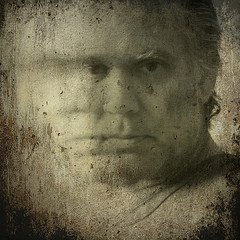Bush: Big Talk, Sissy Walk
Our "strong, steady" President likes to come across as tough when dealing with the "turrists", but has done everything possible to avoid a "town hall" debate format for the upcoming debates [sic].
Scaredy-Cat
President Bush is afraid of participating in the town-hall debate. He should be.
Paul Waldman, The Gadflyer
According to recent news reports, the Bush campaign is attempting to reduce the number of debates the President has with John Kerry from the three proposed by the Commission on Presidential Debates to only two. More specifically, they are attempting to eliminate the town-hall-style debate scheduled for October 8 in St. Louis.
Let us put aside the strong possibility that the Bush team's negotiating position has been constructed with an eye toward convincing reporters that Bush is afraid to debate Kerry, thus lowering expectations for the President and raising them for Kerry. If there is one debate that the President would rather skip, it's the town-hall, because it calls Bush to do the things he is least capable of: responding to unpredictable questions, talking about a wide range of issues, and addressing the day-to-day concerns of real people. And it would be a shame, because the town-hall is far and away the most entertaining and edifying format.
[...]
To a fault, their questions have been substantive and practical, focusing on issues and asking candidates to elaborate their positions and specify what actions they will take as president.
For Bush, this presents a problem: it's one thing to brush off a reporter with yet another recitation of a talking point ("We're safer…Saddam was a threat…we're turning the corner…"), since most voters think reporters are cynics just trying to get the candidates to slip up. But doing the same thing to a voter asking for some real answers doesn't make you look clever, it makes you look rude. Bush knows how to stay "on message" as well as any president in history, a talent that serves him well in many situations. But a town-hall debate isn't one of them.
The second distinction of town-hall debates is that citizen questioners tend to cover much greater ground than journalist questioners. While reporters – who travel and think in a giant pack most of the time – tend to focus on the few issues that are dominating the campaign, citizens have brought concerns to the town-hall debate that a Washington journalist might never have thought of. For instance, in the 2000 town-hall debate, Bush and Gore fielded questions about national health insurance, FDA procedures for approving new drugs, education, the Israeli-Palestinian conflict, military overstretch, the Brady Law, family farms, low turnout among young people, taxes, affirmative action, and the death penalty. Both campaigns can predict fairly accurately what questions a journalist will ask them. But you can never tell what an ordinary citizen is going to bring up.
And this too is a problem for President Bush. To put it charitably, his facility with the details of the myriad policy issues a president confronts has its limits. The citizen questioners bring an unpredictability to debates that plays right to Bush's weakness. As we've seen time and again, when Bush is forced to think on his feet the results range from the comical to the embarrassing. While some issues may allow him to fall back on tried-and-true sound bites even if he doesn't really know what he's talking about, the chances Bush will be thrown a curve ball – and come out looking silly – are fairly high.

No comments:
Post a Comment